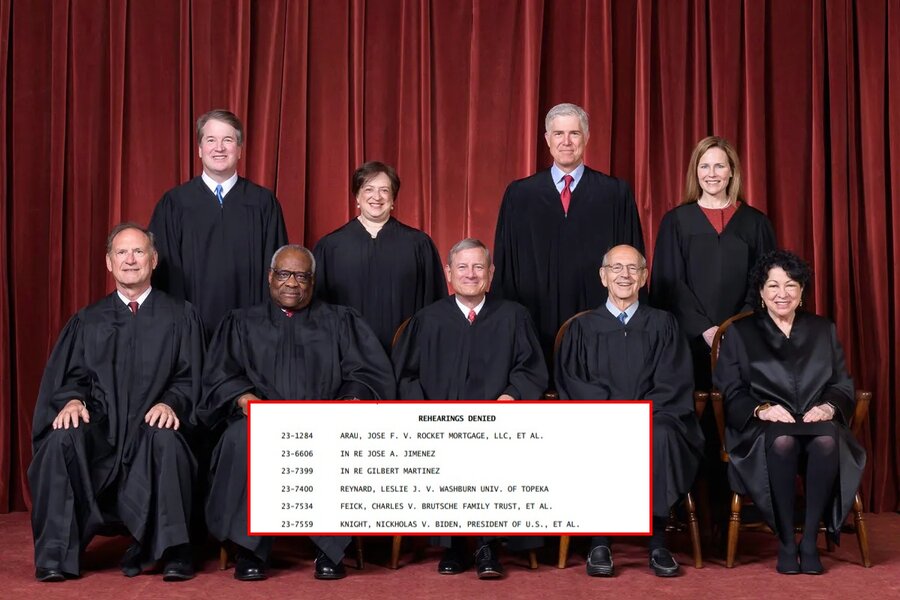The U.S. Supreme Court on Jan. 13 rejected an emergency application to block the Washington Medical Commission from investigating licensed physicians in the state over their criticism of COVID-19 policies.
The Washington state commission considers the doctors’ dissenting views on the disease to be potentially dangerous misinformation that should be suppressed. The physicians counter that just because they have medical licenses they don’t surrender their free speech rights under the First Amendment.
The nation’s highest court rejected the application for an injunction in Stockton v. Ferguson. No justices dissented. The court did not explain its decision.
The doctors previously asked Justice Elena Kagan to grant the injunction, and she declined to do so on Nov. 20, 2024. They then asked Justice Clarence Thomas on Nov. 22 to consider it, and on Dec. 4, he scheduled the application for consideration by the justices at their private conference on Jan. 10.
Supreme Court rules allow an application that has been denied by one justice to be presented to another justice. Neither Thomas nor Kagan explained their respective decisions.
The application was brought by former professional basketball player John Stockton along with Drs. Richard Eggleston, Thomas Siler, Daniel Moynihan, another 50 unidentified medical doctors, and the Children’s Health Defense, a nonprofit founded by Robert F. Kennedy Jr.
President-elect Donald Trump, who will be inaugurated on Jan. 20, has nominated Kennedy to be secretary of the U.S. Department of Health and Human Services. Kennedy, an attorney, is also listed as co-counsel on the application.
The applicants filed suit in the U.S. District Court for the Eastern District of Washington, which denied the injunction on May 22, 2024. The U.S. Court of Appeals for the Ninth Circuit denied the injunction on Sept. 3, 2024.
The lawsuit remains pending in the Ninth Circuit.
The Supreme Court’s new ruling means the case will continue before the U.S. Court of Appeals for the Ninth Circuit, where oral argument has been scheduled for the week of May 12, he said.
“It was a long shot to ask the justices to take over a case during the pendency of an appeal, but we thought it was worth the effort because the basic idea that the state can sanction a physician for speaking out in public about a matter of public interest seems so un-American and at odds with every judge and justice who have written about this issue,” Jaffe said.
“We will continue to remind the courts and those who currently control the medical narrative that in the shifting winds of time, science, and politics, what is reviled and ridiculed may become accepted, and that which had been accepted may become disfavored.”
Share your thoughts by scrolling down to leave a comment.













